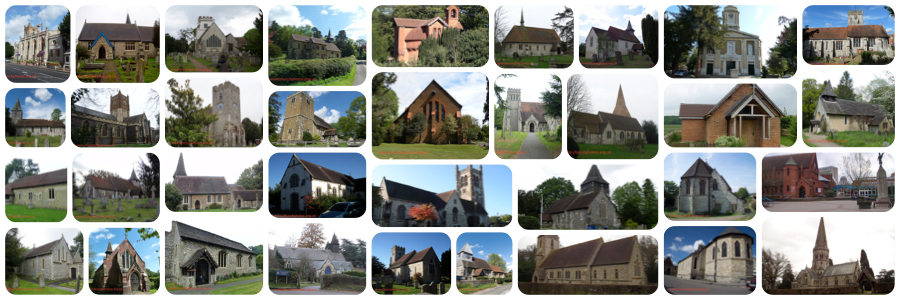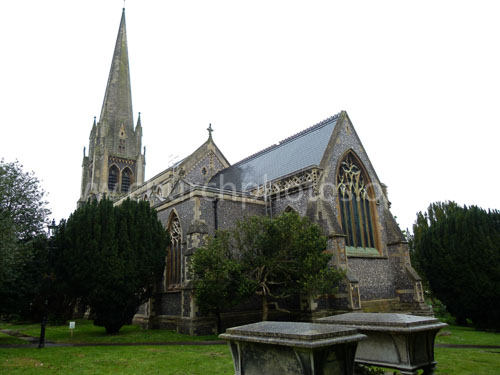
A guide to Churches and Graveyards in Surrey for family historians


|
There are around 640 names for Dorking St Martin in the Surrey Monumental Inscriptions Index, they date from the early 1700s to the 1870s
Search for any references to your ancestor in the Surrey Index of Names:
https://www.wsfhs.co.uk/pages/sindex/siSearch.php (opens in new browser window) or use our contact form to find out which Monumental Inscription collections might be available: https://surreychurches.org.uk/contact Parts of the Ancient Parishan Ancient Parish is a Church of England parish which, until the 19th century, had both ecclesiastical and civil functions of Dorking St Martin became parts of the new ecclesiastical parishesan ecclesiastical parish is an administrative area within the Church of England or Roman Catholic church. It is distinct from the civil parish, a local government unit in England of Holmwood (1839), Coldharbour (1848), Westcott (1852), Dorking St Paul (1857) and Ranmore (1860). Dorking cemetery is also in the parish West Surrey Family History Society CD10(The Surrey Burial Index - 2nd edition 2009) has burial records for Dorking St. Martin from 1538 to 1865. WSFHS CD15(Surrey Baptisms Not in the IGI) has baptismal records for:
See our sales page for more information (opens in a new page). The church is in the Anglican Diocese of Guildford. The Guildford Diocesan Record Office, where you should find any surviving registers for this parish, is the Surrey History Centre. Dorking is in the Mole Valley District of Surrey
Unless otherwise stated the dates for the creation of parishes are taken from Youngs, Frederick. A., Guide to the Administrative Units of England; Royal Historical Society: London, 1979 volume 1 Southern England.
The Mole Valley Index will show you all the churches and cemeteries we know of in the Mole Valley DistrictA district council is a second tier local authority that provides services such as planning and building control, waste collection, environmental health and housing. Surrey County Council is a first tier local authority. Civil parish councils are the bottom tier of local government in England. If we have missed any or you are looking for a church or graveyard that might no longer exist do please let us know using the "contact us" link at the bottom of this page If you came to this page from our main index to churchyards If you came from the Mole Valley page use the button at the top of this page to close the page and go back to the Mole Valley index. |
LinksA church near youParish web site Wikipedia GENUKI British History on Line contact us: https://surreychurches.org.uk/contact |